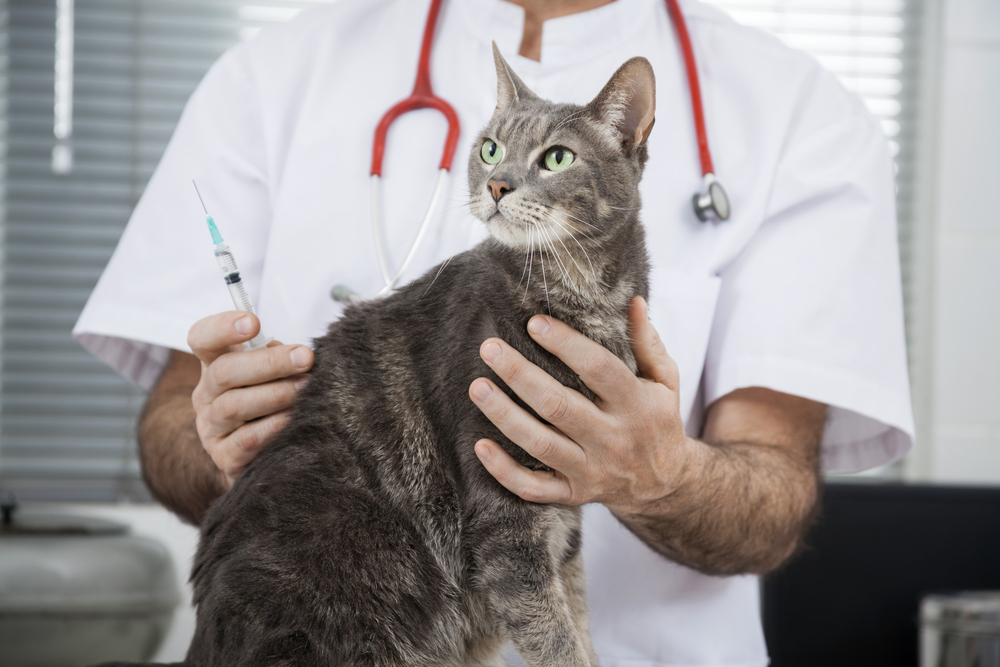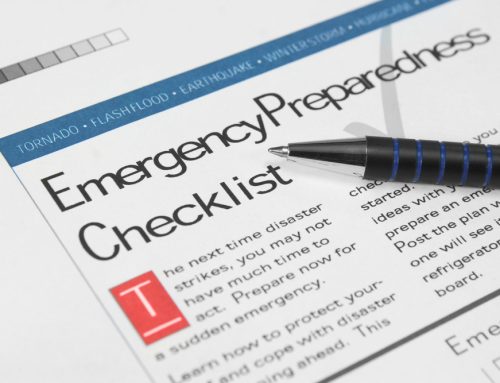Disaster can strike at any moment, and you never know what form it may take—we’re looking at you, COVID-19. In addition to global pandemics, California experiences more than its fair share of natural disasters, like earthquakes and wildfires. We’ve also had to provide as many services as possible during planned power outages this year. 2020 has been a tough year for our country and our beautiful Fairfax hometown, where we’ve had to battle a multitude of disasters. To ensure your entire family, pets included, survive disasters unscathed, we’re highlighting essential disaster preparations that will keep everyone safe. Check out the following five tips to prepare for emergencies.
#1: Stock up on your pet’s necessities
Running out of your pet’s food or medication during normal times can be a hassle, but the consequences can be critical during a disaster, especially if supplies are limited. While you can’t prepare for every disaster that comes your way, certain seasons and times of year are more disaster-prone than others, and you can stockpile necessities for those times. When loading up on family supplies, add the following pet essentials to a waterproof tote:
- Seven-day food, water, and medication supply
- Collapsible food and water bowls
- Disposable litter trays and litter
- Long-lasting treats
- Food puzzle
- Favorite toy
- Bedding
- Crate or carrier
- Leash and harness or collar
- Medical history and vaccination records
- Current photo of you with your pet
To ensure your pet’s perishable items remain fresh, rotate food, water, and medications every three months.
#2: Ensure your pet has multiple identification forms
Collar ID tags can fade away or fall off, and make linking you with your missing pet impossible during an evacuation or disaster. While tags provide useful contact information, all too often pets go missing without collars, or their tags break and fall off while they’re wandering. Don’t rely solely on a removable identification form—double up on identification, and get your pet microchipped. A microchip is the only permanent identification form for pets, and does not require batteries or replacement. However, you must keep your contact information with the microchip registration company up-to-date to ensure you can be reached if your missing pet is found.
#3: Ensure your evacuation plan includes your pet
Your evacuation plan may differ for each natural disaster or emergency, but one component always remains the same—including your pet. You may ask a trusted neighbor or friend to pick up your pet if you cannot get home in time, which requires giving them a house key. You also need to chart a pet-friendly evacuation route with hotels that accept pets or boarding facilities. Plan for a potential emergency in each scenario, and avoid panicking by ensuring your pet’s care is included.
#4: Learn pet first aid skills
While many pet first aid techniques are similar to those performed in people, pets are much more likely to bite the caregiver. All jokes aside, first aid should be used only to stabilize a pet until you can reach a veterinarian. Add a few pet supplies to your standard first aid kit, such as a muzzle, slip lead, and styptic powder, and brush up on your pet first aid skills with the American Veterinary Medical Association’s help. They provide numerous guides that cover packing a pet first aid kit, performing first aid on pets, handling an injured pet, and preparing for a disaster.
#5: Keep your pet current on essential vaccinations

If a natural disaster or personal problem crops up and you can’t keep your pet by your side, you may need to house them in a boarding facility. While our Fairfax Veterinary Clinic team would be delighted to care for your cat, dog, pocket pet, bird, reptile, or other exotic pet, our hospital may also be in the figurative or literal line of fire, and unable to take boarding reservations. Regardless of where your pet is boarded, they need protection from infectious diseases with essential vaccinations. Most boarding facilities require at least core vaccinations, and possibly a current negative fecal exam, so stay up to date on vaccinations, parasite prevention, and screening tests to ensure your pet can be boarded in a pinch.
If you experience a family emergency and need to board your pet in a safe, clean, caring place, reserve accommodations in our boarding facility. Or, if you’d like your pet to be microchipped or their chip’s function checked, contact our Fairfax Veterinary Clinic team for an appointment.








Leave A Comment